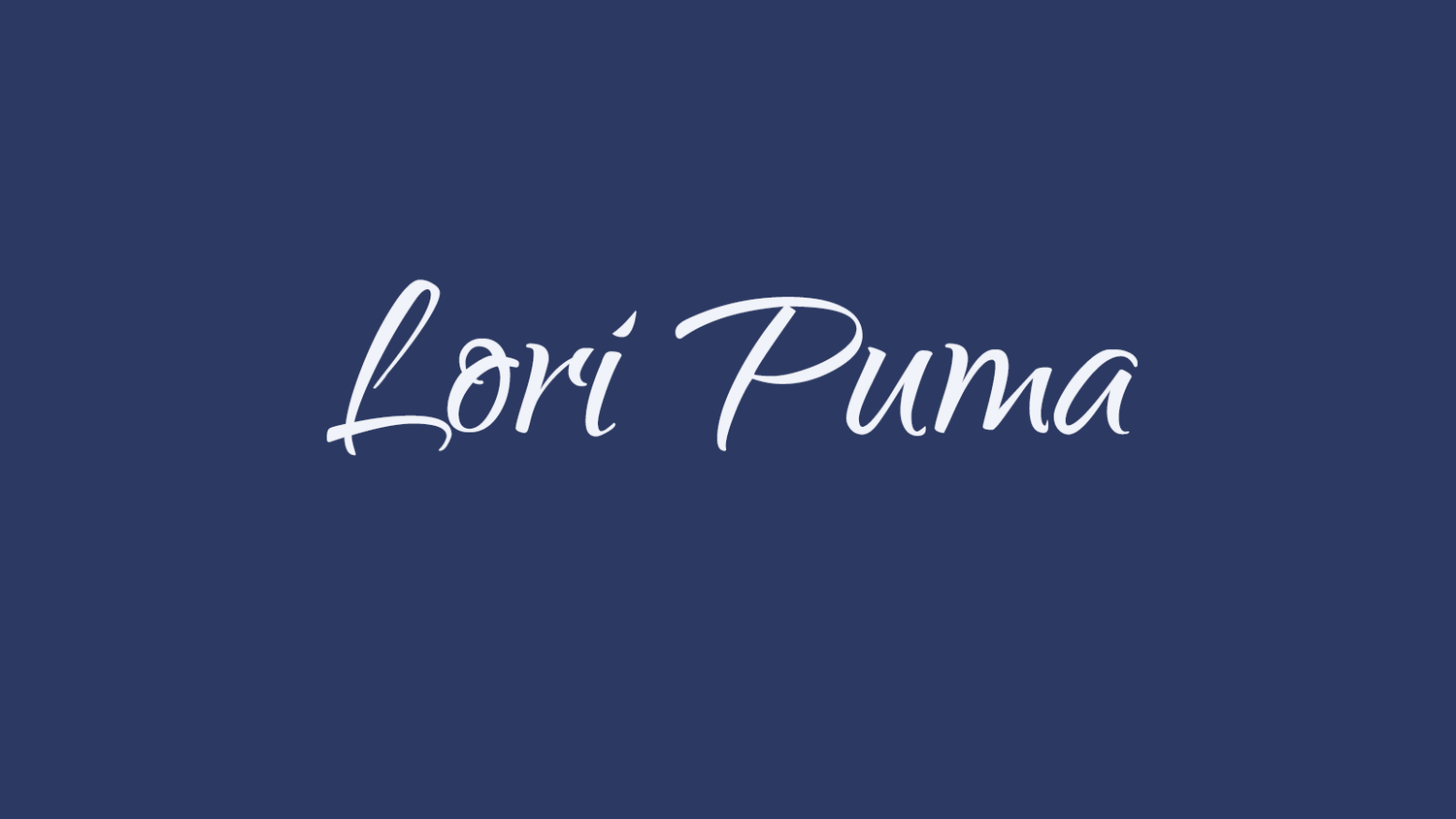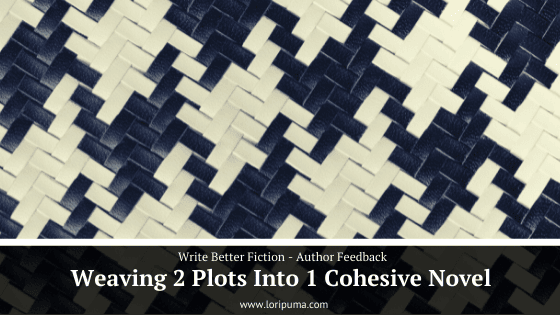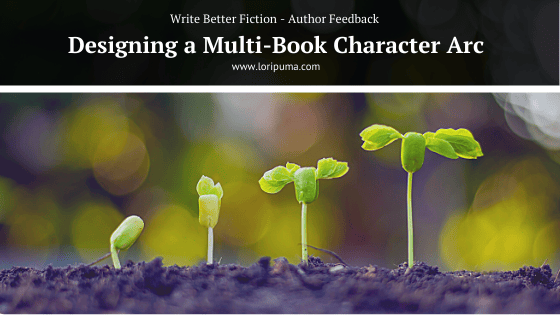Two Vital Ingredients in a Romance
/What makes a romance novel ‘good’? Learn about two vital ingredients every romance needs to make readers swoon and feel excited to read your next romance.
Today’s author is Tracy Culleton. She’s written a 60k contemporary ‘clean’ romance. She’s written six other novels, and published three of them, but this is her first romance. Here’s her summary:
Dara and Leo are both wary after being used and manipulated by previous lovers, so they’re not falling for that again. If only the chemistry wasn’t so strong.
Tracy said her goal for this book is:
To produce a story that makes readers go ‘Awww’, and use that story as a launch pad to writing many more romances.
In terms of what kind of feedback she’d like, she says:
Moving into a new genre and wondering if I’ve hit the mark. Friends have loved the story, but I need objective opinions.
There are many things that go into a good romance. Let’s talk about two vital ingredients that impact your entire novel.
Two vital ingredients in a ‘good’ romance
Romance readers want to see your heroes become their best selves. But the journey to becoming a better person is rarely easy or comfortable. To ensure romantic heroes face an appropriate level of challenge, a romance novel needs two things.
A situation that forces the romantic heroes to interact and (mostly) prevents them from running away when things get difficult.
Romantic heroes who are uniquely suited to sparking the change in each other that makes an HEA possible, believable, and satisfying.
We’re going to take a closer look at each ingredient separately and then assess Tracy’s story.
The glue that holds romantic heroes together
No one likes to be uncomfortable. So, we need to make sure our romantic heroes are in a situation where they face obstacles that prevent them from leaving. If the heroes don’t face strong enough obstacles, the romance will feel forced, because it will be hard for readers to believe that the heroes are choosing to stay. If we’re uncomfortable, we leave.
The situation and obstacles that hold romantic heroes in place come in two flavors: immediate and gradual. Situations where a change is immediate are almost always irreversible. If you get stuck in a remote location because of a sudden storm, you can’t go back in time and change your behavior. (At least not in a contemporary romance.)
For gradual situations, you’ll need to make sure that at least one of your steps is difficult to reverse. For example, let’s say your hero gets a new job with a hot boss. In real life, you could just quit and get a new job so you can date your hot boss. In a romance, you don’t want to let your character off so easily. You want to add a character motivation, or another difficult to overcome obstacle that keeps your hero interacting with the hot boss.
You could give your hero a reason they can’t quit the job, such as this job is their absolute dream job. Something they could do nowhere else. Or this job is the best paying job available, and it’s the only one that will let the hero pay for the care their autistic brother needs.
Or you could add a new complication that forces the hero to interact with the hot boss in another way. The hero could quit and then get trapped in an elevator with the hot boss when they’re leaving. Both heroes could be named joint executors of the estate of an industry leader who mentored both of them.
The complication can be anything as long as it meets two criteria. First, it keeps the heroes interacting. Second, it’s more difficult to escape then the situation it replaces. We can’t let the heroes quit the story!
This first vital ingredient keeps our romantic heroes in the story. Let’s look at the second ingredient.
How romantic heroes spark change in each other
Romantic heroes need more than physical attraction. The heroes serve as antagonists to each other, so they should be uniquely equipped to both inspire and aggravate their counterpart. We want each hero to see themself through new eyes and be willing to take chances they weren’t willing to take before. We also want to hold them each accountable for any poor choices that they’ve been making.
At the beginning of a romance, both heroes are missing something in their lives. They’ve got a mistaken belief about how the world works. This initial belief is one of the things that make it impossible for the heroes to get together in the first chapter.
By the end of the novel, compromise and a committed relationship are possible because both heroes have changed both their beliefs and their behavior. And because the heroes are antagonists to each other, the arcs of their change need to complement each other. This is much easier to see in examples.
Here are two examples of complementary arcs:
EXAMPLE 1
Hero 1 starts off believing that they’re satisfied with having only casual romantic relationships. So, at first they’re relieved that Hero 2 spends so much time with her friends. But over time, the casual hero starts to envy Hero 2’s close relationships and wants that kind of closeness for themself.
Hero 2 starts off believing that all she needs are the close relationships that she already has. But when she meets Hero 1, she admires their independence and willingness to take risks, even when others don’t approve. Over time, Hero 2 might feel more boxed in by her relationships, and eventually will find new ways to assert herself within those relationships.
EXAMPLE 2
Hero 1 is a workaholic who believes being prepared for the worst is THE most important thing because you never know when disaster will strike. Hero 2 is a party person who believes you have to pack as much enjoyment as you possibly can into your days, because you never know when your time will be up.
Hero 1 is going to be irritated by what they see as Hero 2’s irresponsibility. However, over time, Hero 1 may come to appreciate how taking time to enjoy the good things in life is just as important as preparing for potential disasters.
Hero 2 might resent Hero 1’s refusal to ditch work for fun activities. But when disaster does strike, Hero 2 starts to realize that partying all the time has drawbacks. Hero 2 becomes grateful to Hero 1 for helping them survive a disaster and giving them a second chance when they can be a little more cautious.
Basically, each hero has things they need to learn from the relationship. Those lessons can be positive. The hero is empowered to take new risks or forgive themselves for circumstances beyond their control. Or the lessons can be negative. The hero is forced to feel the negative impact of their past behavior and change their ways.
See how much progress you’ve made in creating a once-in-a-lifetime love story for your characters–and figure out what comes next.
The two vital ingredients in Tracy’s story
Here’s how Tracy described her two romantic heroes.
Dara has no money and doesn’t know what to do next. She decides to leave her native Boston to go to her ancestral country of Ireland as a Workaway volunteer to give her time to figure things out.
Leo is an Irish businessman who’s taking time out of his own life to restore a derelict cottage on a little island in Roaringwater Bay and to try to recover his faith in women in the process. Who knew that hauling rocks and mortaring bricks could be so romantic? But they both are hurt, and wary, and hiding secrets, and that backfires.
Leo is the antagonist in the sense that he’s the other half of the romance, but he’s no villain. But he’s licking his wounds after his previous lover used him for his money and connections. He thought he was a good judge of character but now he’s doubting that.
We know that Dara and Leo are both wary. It’s great that there are reasons that they will both be reluctant to get together immediately. They’ve both got secrets and unresolved issues. That’s also great. Those are potential sources of lessons that they could learn from each other and conflicts that they could have.
I have two concerns.
First, if both heroes are wary and untrusting, what’s preventing them from running away from each other? I want to know more about the glue holding them together.
Second, I want to know more about how Dara and Leo’s character arcs are going to complement each other. Leo has money, and Dara doesn’t. So that’s certainly one source of lessons they could teach each other. And they’ve both been hurt in similar ways in the past so that can be a source of understanding between them. But are they uniquely equipped to spark change in each other?
Here’s what I want to know more about.
For Dara’s character
Dara is unsure about what she wants to do with her life. How is not knowing what she wants an obstacle to committing to a relationship with Leo? Beyond just feeling uncertain, how is Dara’s lack of clarity a threat to Leo and Dara’s HEA? Is Leo a super-organized person and he thinks she’s a flake? Is Dara very impulsive and Leo a cold and calculating sort? Basically, what is Dara missing in her life that she needs to learn from Leo?
Dara is running away from the man who bankrupted her. What’s her back-up plan? Is there a specific outcome that would be soul-crushing to her that she is trying to avoid?
Obviously, given Dara’s history with the bankrupter, she’s going to have a hard time trusting anyone, but I’d like to know if there’s something that makes Leo specifically, a tough sell for her. Does Leo share any similarities to the guy who bankrupted her? Do they have traits, habits, or experiences in common? (This should also tie in to the lesson that Dara needs to learn by the end of the novel.)
We know that the Workaway program brings Dara to Ireland, but is the house project what brings Dara and Leo together? If so, how difficult is it to leave the project when things get uncomfortable? Does Dara have a work visa that will be void if she quits?
For Leo’s character
We know that Leo’s last lover used him for his money and connections. Is there a specific thing that happened to him that was humiliating that he wants to make sure never happens again?
We know that Leo will probably be reluctant to get involved with someone who isn’t financially successful but is there something about Dara more specifically that makes it difficult for Leo to trust her? Does Dara share any traits, habits, or experiences with the woman who used Leo for his money and connections?
I assume there is some kind of time-related pressure because Dara is in a program and that will end at some point. Does Leo have some kind of time-related pressure as well? Does he need to be back at work on a certain date? Has he promised himself that he will stay away from relationships for a certain period of time or until he reaches a specific life milestone? Does he have plans to travel somewhere else?
What is Leo missing in his life that he needs to learn from Dara?
For both characters
They’ve both been victims of unscrupulous lovers in the past, how have they differed in their processing of those experiences? Have they adopted different coping strategies? Did they learn different lessons? What are those lessons and coping strategies?
The answers to all of these questions might be in Tracy’s manuscript. Let’s recap what Tracy should look for to know if her manuscript hits the mark.
See how much progress you’ve made in creating a once-in-a-lifetime love story for your characters–and figure out what comes next.
Next steps for Tracy
Tracy’s got a full manuscript, so the big question is: Does the manuscript need another round of revisions? The answer to that question is going to come from looking at the two vital ingredients.
First, is the situation strong enough to keep Dara and Leo together?
So the heroes are in Ireland, near each other. But why MUST they interact? Do they have a contractual relationship? Are they both working with the same organization? Do they have a mutual friend? What’s going to make it difficult for Dara and Leo to leave when things get uncomfortable? Over the course of the story, does it get harder and harder to leave (for reasons other than physical chemistry)?
Second, is Leo uniquely suited to spark change in Dara? Is Dara uniquely suited to spark change in Leo?
What do they each believe at the beginning of the novel? How do their interactions with each other challenge those beliefs and make them shift both their beliefs and behaviors?
For more info on creating a character arc and challenging a character’s beliefs check out this post.
If Leo and Dara can’t escape each other easily and they’ve both got something that the other needs, then Tracy will know she’s hit the mark.
Like this post? Join my email list so you’ll know when I publish the next author feedback post and when the submissions window is open so you can submit your story.





